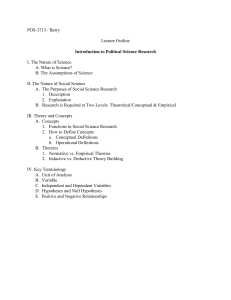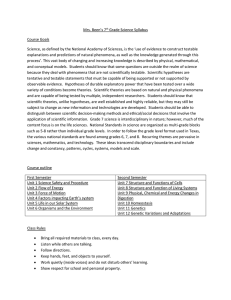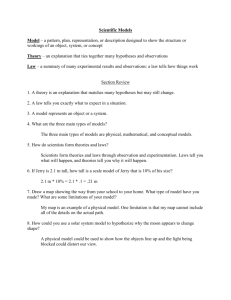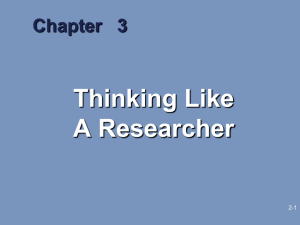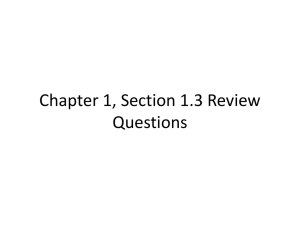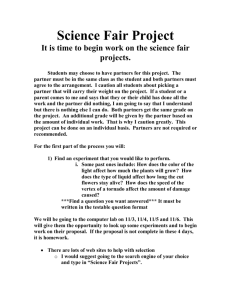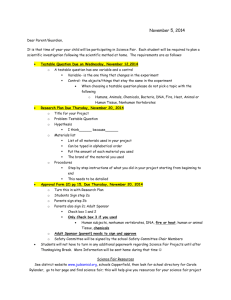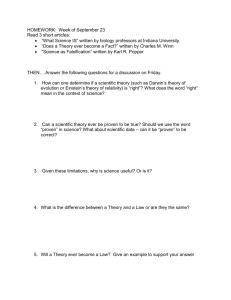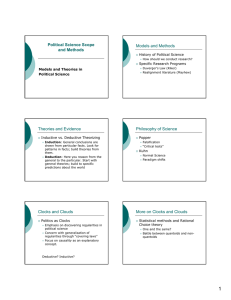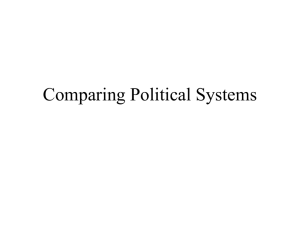Principles of Science and Systems Presentation
advertisement
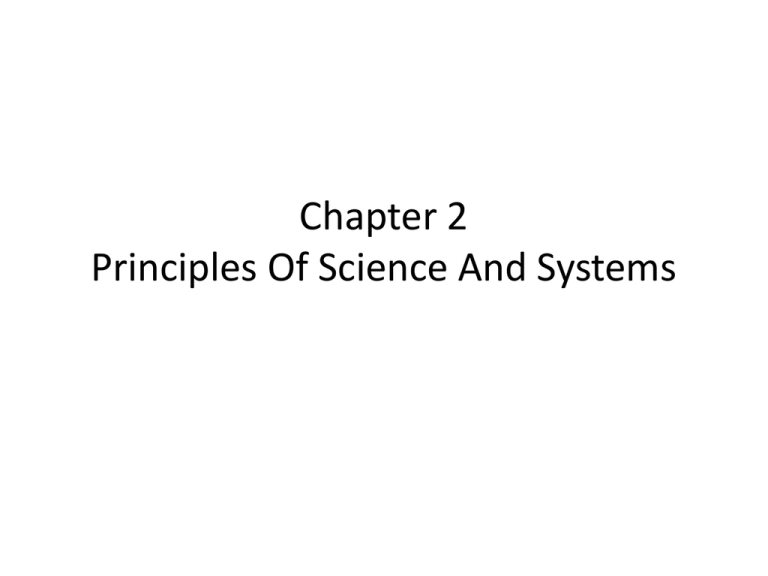
Chapter 2 Principles Of Science And Systems What Is Science? • Science Depends On Skepticism And Accuracy • Deductive And Inductive Reasoning Are Both Useful – Deductive: Use Existing Knowledge to Find New Facts – Inductive: Generalize from Observations • Testable Hypotheses And Theories Are Essential Tools Basic Principles of Science • Empiricism: Experiment and Observation • Uniformitarianism – Physical Laws Uniform in Space and Time – This is a Finding, Not An Assumption • Parsimony (KISS: Keep it Simple, Students) – Simple isn’t Automatically Right – Unnecessarily Complex is Usually Wrong Basic Principles of Science • Uncertainty – Theories always open to correction or Improvement – Reality Check: Atoms are Real • Repeatability – When in Doubt, You can Repeat Observations • Testable Questions Testable Hypotheses And Theories • Testable Hypotheses And Theories Are Essential Tools – Commonly Used as a Criterion for Whether an Idea is Scientific – Repeat Observations, Logical Consistency – Has to be “Risky” What Are Statistics, And Why Are They Important? • Exploring Science Understanding Probability Helps Reduce Uncertainty • Statistics Can Indicate The Probability That Your Results Were Random • Experimental Design Can Reduce Bias • Models Are An Important Experimental Strategy • Need to Understand Common Statistical Fallacies A Few Common Statistical Fallacies • Confusing order and probability • Long runs do not make an event less probable • Long negative runs do not make an event more probable • Spurious patterns • Clusters don’t make events more or less probable. • After-the-fact probabilities • Treating non-random events as chance events • Poor memory and fakery Systems • Systems Describe Interactions • Systems Can Be Described In Terms Of Their Characteristics • Systems May Exhibit Stability, Cyclic Behavior or Instability • Scientific Consensus And Conflict • Detecting Pseudoscience Relies On Independent, Critical Thinking
